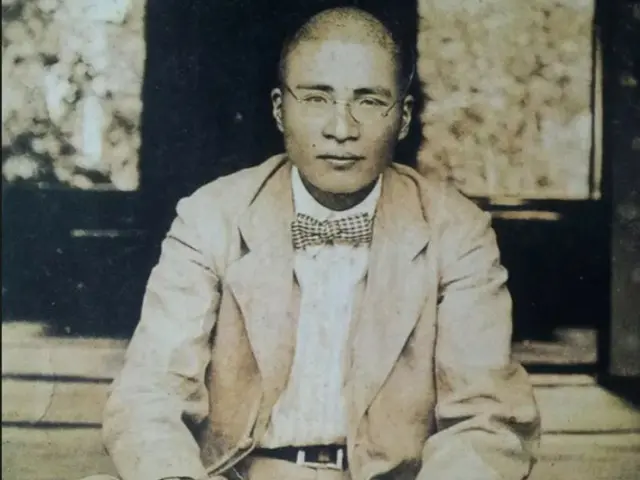On the 2nd, the Korean civic group "Asakawa Noritake & Takumi Commemoration Association" held a memorial service for the 93rd anniversary of the death of Asakawa Takumi at the Asakawa Takumi Cemetery in Manwoo-ri Park in Seoul.
The event was attended by Kim Jong-gyu, chairman of the National Trust for Cultural Heritage, Shin Bong-gil, chairman of the Korea Council for Foreign Relations, and Jeong Jae-sook, former secretary of state for international affairs.
More than 20 people attended, including the Director-General of the Chemical Affairs Agency and Kawase Kazuhiro, Director of the Public Information and Cultural Affairs Department of the Japanese Embassy in Korea. They sang memorial songs and read a eulogy written by his elder brother, Hakunori, for his younger brother, Takumi.
Takumi Asakawa, who passed away on April 2, 1931, was a representative figure of the Shinhan school. At the time, he lived in Korea with his brother and devoted himself to the study and preservation of folk crafts, including ceramics.
While working at the Forestry Research Institute of the Government-General of Korea, he devoted himself to forest conservation, developing a method for promoting the germination of Korean pine (Japanese white pine) buried in the open.
In front of Takumi Asakawa's grave, there is an inscription that reads, "A Japanese man who loved the mountains and folk arts of Korea and lived in the hearts of Korean people.
There is a tombstone engraved with the words, "This will become Korean soil." Takumi Asakawa's life is also known from the movie "The Road - The Man of White Porcelain" (2012).
"We respect and admire Takumi Asakawa and mourn him because we are living in such difficult times," said Lee Dong-sik, chairman of the memorial association.
"The fact that Korean and Japanese people, who share the same heart, have come together to mourn one person and share the same heart is not the utopia that Cho and Bakugyo had hoped for.
I think that's a good idea," he said.
2024/04/03 16:47 KST
Copyrights(C) Herald wowkorea.jp 96

